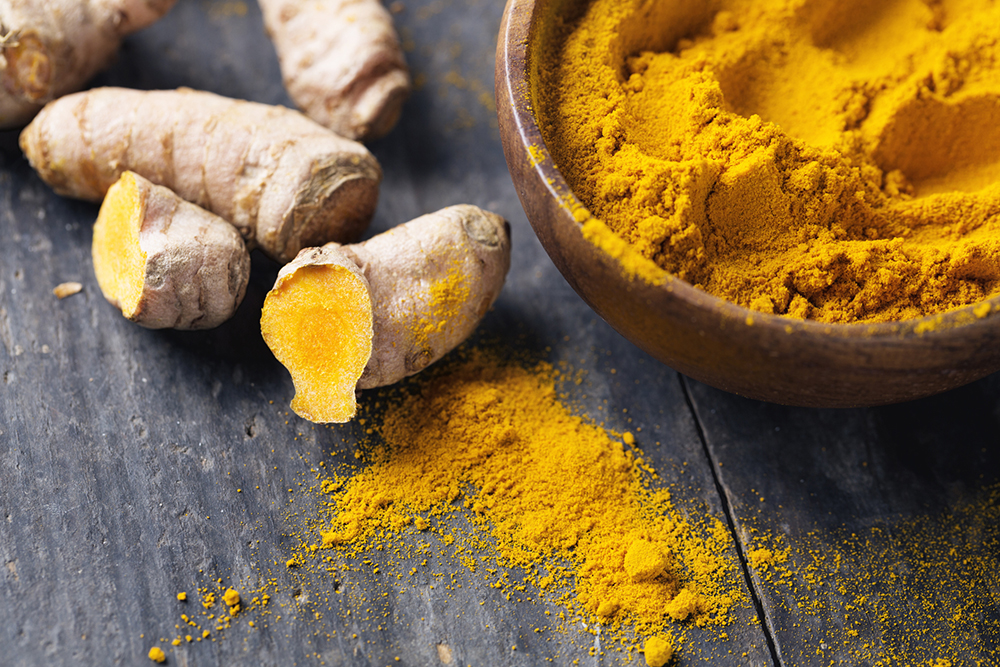Turmeric, hailed for its healing properties, has been used in natural medicine for centuries, and it remains one of the most popular dietary supplements to this day. But is it actually good for you?
Recently, turmeric has been investigated by many clinical trials to help us understand more about the herb and if its medicinal properties are as powerful as our early ancestors believed. The results might surprise you.
Why turmeric is good for your brain
If you, like many, suffer from mental fatigue, have trouble concentrating, or develop memory problems unrelated to dementia, you might be experiencing what’s known as brain fog.
Brain fog isn’t a medical condition; however, its symptoms can lead to reduced brain function.
The brain is a complex organ, and no one supplement or herb can remedy everything. That said, studies have suggested that curcumin, the main active ingredient in turmeric, could be a worthy candidate for nutraceutical intervention.
Curcumin’s anti-inflammatory properties are important because some conditions that affect the brain, most notably Alzheimer’s, result from chronically high inflammation. For this reason, anything that can lower inflammation is considered helpful.
That said, neurodegenerative diseases like Alzheimer’s are complex, and no one-size-fits-all approach can treat them. If you were to use turmeric or curcumin to treat these diseases, a daily supplement wouldn’t have a profound effect; you’d have to consume high medicinal doses to achieve an effective result.
Still, that doesn’t mean turmeric is useless. Many people find a daily turmeric supplement helps them stave off migraines and even minimize depression symptoms.
Curcumin, brain-derived neurotrophic factor (BDNF), and Alzheimer’s
Adults age 65 and older are at risk of developing dementia, and Alzheimer’s is one of the most common forms of dementia. The World Health Organization (WHO) estimates that Alzheimer’s is linked to at least 70% of dementia cases.
Brain-derived neurotrophic factor (BDNF) is a gene that’s primarily responsible for promoting neuron longevity. According to an article on Healthline.com, “many common brain disorders have been linked to decreased levels of BDNF protein, including depression and Alzheimer’s disease.”
In recent studies on animals, scientists have found that introducing curcumin into their systems increased BDNF levels, leading the researchers to believe that the same results could be replicated in humans, delaying or reversing age-related decreases in brain function; however, further studies need to be conducted to prove this.
Studies have also indicated that curcumin, in addition to increasing BDNF, crosses the blood-brain barrier, which contains blood vessels that vascularize the central nervous system.
Other studies still have indicated that curcumin and turmeric may reduce oxidative damage and amyloid plaque buildup in Alzheimer’s patients.
Although it remains to be seen whether curcumin or turmeric can slow, or even reverse, the progression of Alzheimer’s, adding it to your diet won’t impede your efforts to improve your brain health.
Adding turmeric to your diet for better brain health
Turmeric powder is only 3.14% curcumin, meaning it’s unlikely that adding more spice to your curry or smoothies will make much of a difference or provide optimal benefits. You’ll need to take an encapsulated turmeric supplement to get the most out of the spice and the curcumin it contains.
Be careful about taking turmeric by itself as well. Turmeric isn’t dangerous, but the curcumin it contains doesn’t absorb well into the body when ingested directly. For maximum benefits, the turmeric supplement must have something else added to it; black pepper is a common choice for turmeric supplements.
When shopping around, look for supplements that include the patented ingredient AstraGin, which has been shown in studies to improve turmeric absorption by 92% and even boost overall gut health.
If you’re interested in taking turmeric to minimize brain fog or improve your brain health, speak with your doctor to learn more about it. Although it’s relatively safe to use, ensure that you’re taking the correct dosage and that there are no contraindications with other drugs you are taking.
Our LivWell program focuses on whole-person wellness, catering to each of seven dimensions of wellness with a deep understanding of our physical, intellectual, emotional, social, environmental, spiritual, and vocational needs. Contact our senior living community in Monroe Township, NJ to find out more.



